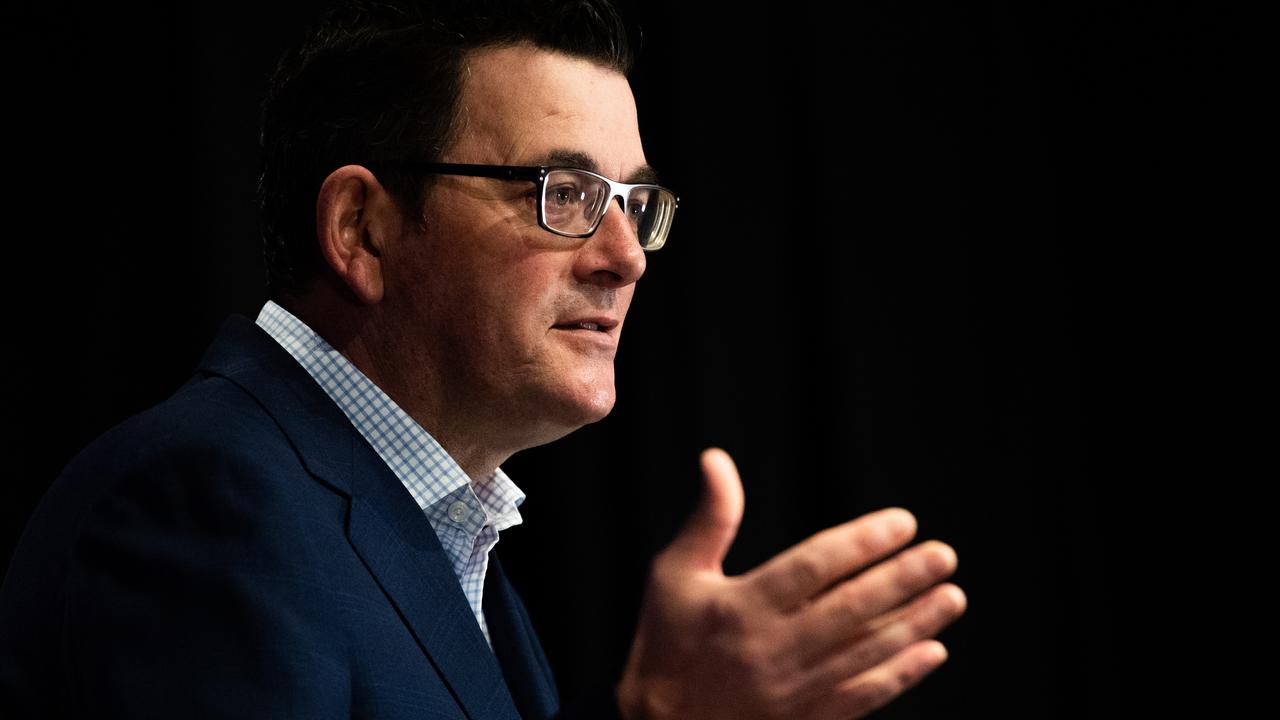Rita Panahi: ‘Change the date’ campaigners ignore the damning reality for indigenous Australians
The loud, shrill minority is determined to soil Australia’s national holiday but we shouldn’t change the date to appease the perpetually aggrieved, writes Rita Panahi.
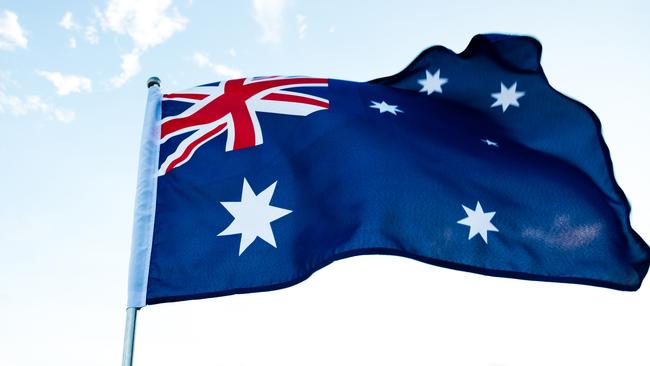
Rita Panahi
Don't miss out on the headlines from Rita Panahi. Followed categories will be added to My News.
Here we go again. The loud, shrill minority is determined to soil Australia’s national holiday.
Never mind that they represent the views of only 6 per cent of the population, including only a third of indigenous Australians, according to a 2017 poll commissioned by Leftist publication The Guardian.
Successive polls have shown widespread support for keeping Australia Day on January 26, the latest, commissioned by conservative think-tank the IPA, was released this month and showed only one in 10 want to change the date.
The campaign to paint Australia Day as a deeply divisive, hurtful celebration of genocide, invasion and white pride has failed miserably but that hasn’t stopped activists, aided by the media, from indulging in their usual race-baiting antics.
MORE RITA PANAHI: CRUELTY TO ANIMALS HAS NO PLACE IN FOOD CHAIN
VILE TRAITORS HAVE NO PLACE IN AUSTRALIA
RUDD’S TWEETS ARE DAMAGING HIS LEGACY
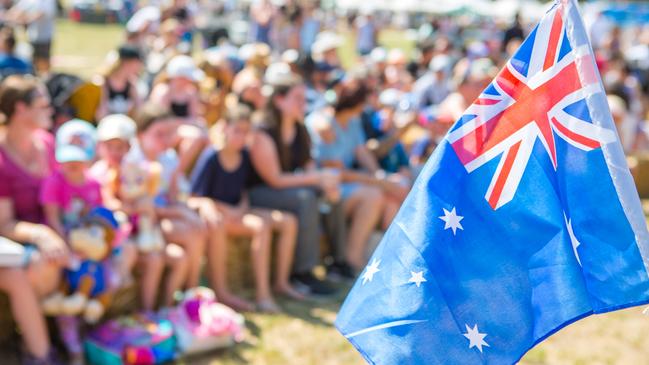
And, again they are resorting to falsehoods, half-truths and non-sequiturs to advance a toxic oppressor and oppressed narrative that casts indigenous Australians as perpetual victims and the rest of us as land-stealing, unworthy aggressors and worse, much worse.
It’s pleasing to see that despite the prevailing media line, pushed by public figures from actors to academics to athletes, the overwhelming majority of the country is not buying into the ugliness. Evidently, Australians are smarter than the bulk of the commentariat, many of whom continue to advance the notion that changing the date is not only inevitable but the decent thing to do.
For the perpetually aggrieved, changing the date is not the endgame and nothing will be achieved by trying to appease these fringe-dwelling agitators.
More importantly it would not make any difference to those genuinely disadvantaged in remote communities whose plight is continuously sidelined by the anti-Australia Day campaigners.
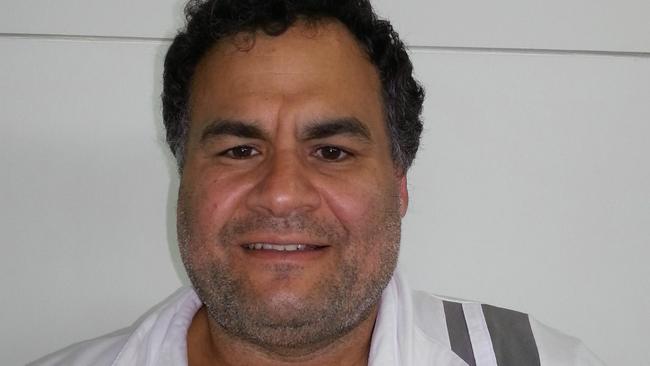
Indigenous leader and scholar Dr Anthony Dillon nailed it when he blamed protesters for “jumping on the ‘Invasion Day’ bandwagon because it’s easier than addressing the real issues” such as “child abuse, violence, homelessness and unemployment.”
Not only are ‘change the date’ campaigners reluctant to discuss the endemic issues afflicting indigenous communities, but they attack those who do.
“If you talk about ending the violence and the child sexual abuse, which is a known link to suicide, you’re branded a sellout if you’re Aboriginal,” Dr Dillon said.
“If you’re non-Aboriginal you’re called a racist. We’ve got to have these tough conversations for things to get better.”
It’s far easier to use Australia Day to push the black armband view of the country where all the blame can be laid neatly at the feet of the evil invaders and their ancestors instead of tackling issues around culture, personal responsibility and the raft of well-funded but broken indigenous programs.
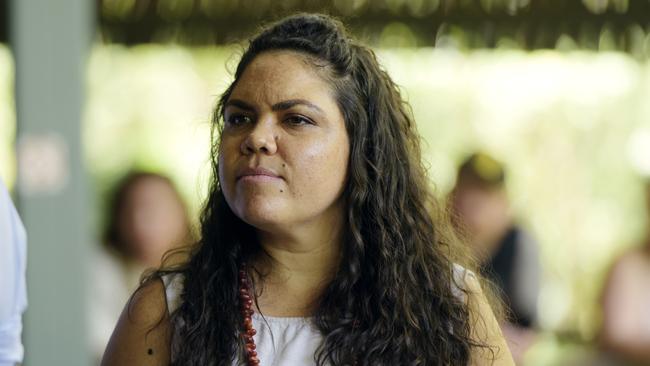
Another Aboriginal leader who has suffered vile abuse, much of it racist and sexist, plus threats of violence for speaking out against the prevailing media narrative is Jacinta Price.
“I know many Aboriginal people who are silenced because of fear of this kind of treatment if they speak the truth on tough issues,” she said.
Of course there are far more prominent indigenous people in the media who speak out against Australia Day and joining them last week was new Today show entertainment reporter Brooke Boney. “I can’t separate the 26th of January from the fact that my brothers are more likely to go to jail than they are to go to school,” she said.
“Or that my little sisters or my mum are more likely to be beaten and raped than anyone else’s sisters or mum and that started from that day.”
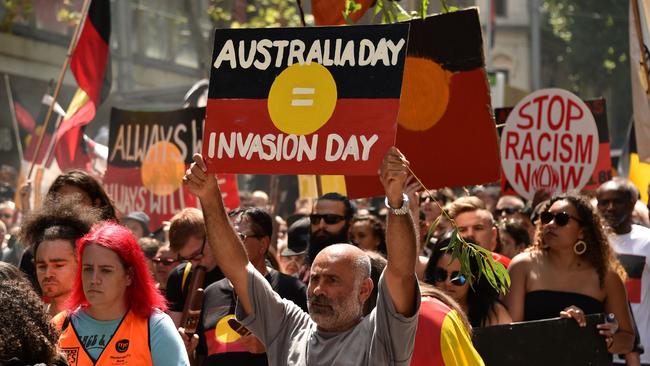
No, it didn’t start on that day and pretending otherwise is ignorance writ large. The brutal treatment of indigenous women at the hands of indigenous men was noted even by First Fleet explorers and settlers.
To pretend that violence against women arrived with the British settlers, like smallpox, is simply false. The British may have brought jails but they also brought schools, hospitals and the rule of law. It’s up to Boney’s brothers whether they end up behind bars or with a qualification and there is significant support available for any indigenous Australians who wants to study.
Indeed, Aboriginal and Torres Strait Islander students receive preferential treatment via admission schemes where they can gain entry to university courses even if their score is below the minimum ATAR.

They also have access to a range of scholarship programs and financial assistance packages. For example, last year every indigenous student admitted to an undergraduate degree at the University of Melbourne received a Melbourne Access Scholarship valued at $5,000 per annum for their duration of their course. There are myriad of other taxpayer funded schemes designed to close the gap available exclusively to indigenous Australians.
What needs far greater attention is the shameful rates of child abuse and neglect and extraordinarily high rates of domestic violence in indigenous communities.
It is a national disgrace that indigenous females are around 35 times more likely to be hospitalised due to domestic violence than other Australian women.
But activists would rather ignore the damning reality and instead focus on changing the date, changing the flag and other symbolic gestures like the national apology, none of which will save a single at-risk child or women.
— Rita Panahi is a Herald Sun columnist


